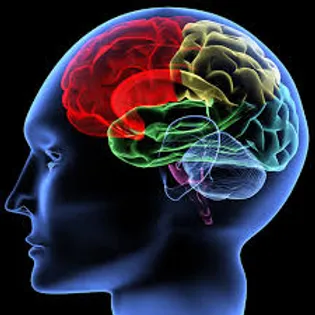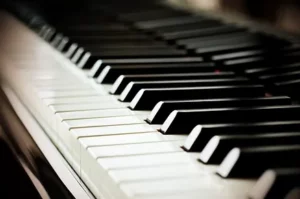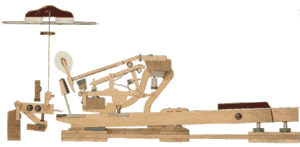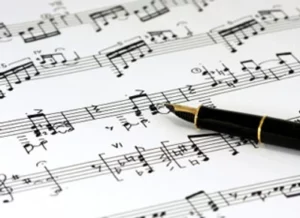Often one of the first questions parents and adults alike have are what are the reasons to learn the piano, or the advantages of learning the piano over any other instrument or why choose to learn the piano over another kind of activity.
Let’s face it. There is no shortage of options of activities for their kids. And for adults there’s no shortage of things that take up time. Work alone takes up a huge chunk and, if you have kids, finding time for yourself is a big call.​
So why choose the piano? OK, I’m probably biased. I think the piano is a truly wonderful instrument which is why I have spent my life playing it. But there are many well known advantages and benefits to learning the piano besides my say so. And if you are interested in further reading, I have put some links to some other websites to check out.
1: It’s a great instrument for young kids to learn
There are many instruments that are not possible for young kids to learn. Until kids have started to get their adult teeth and get big enough lungs, many wind and brass instruments are simply not possible to play. Besides the violin, the piano is one of the few instruments that a child as young as three or four can start on. But that isn’t the only reason.
2: A perfect instrument to learn first
If you or your child are determined to learn another instrument (like the saxophone, tuba, oboe, flute or drums – yes, even drums!!) then starting off with the piano is a great idea. Piano players have to read both bass and treble staves (for low and high notes). This means whether your child takes up the piccolo or the double bass as they get older, they will be able to read the music for that instrument.​
Importantly, the best time for a child to learn music is when they are young: when they are in their language acquisition phase. Kids learn languages easily and music is another language. The earlier they learn it, the more likely that they will find the acquisition of the language to be easy.
3: Pianists don’t just play a melody or an accompaniment – they do both
One of the great things about the piano is that you can play more than one note at a time. It is this quality alone that makes the piano such an attractive instrument to play.
You only need one person and one instrument to play all parts of a piece: its melody and its accompaniment. Try doing this on a tuba or a flute!
The piano is also great at accompanying other instruments. It beautifully accompanies singers and instrumentalists alike. And it is versatile. Two pianists can play duets. A pianist can be in a band, join a chamber music group and play with other instruments. And the finest pianists can play a concerto with an orchestra. The possibilities are endless with the piano.
4: Increase hand eye coordination and develops manual dexterity
While it might look like that pianists simply push keys and the sound comes out, the reality is that there is much more to this instrument than meets the eye. Beginners start by simply reading music and learning to activate the right finger to play the right note at the right time (not so easy already!) and then they discover that they can alter the sound to make it loud or soft, or sweet or metallic or singing or percussive.
5: Shown to have academic benefits and increase IQ
There are countless studies that have linked academic excellence and increases in IQ to students that play the piano. One very famous study is called the Mozart effect. In this study, scientists undertook brain imaging in young children and adults who were listening to music. They found that when an individual listened to Mozart and Bach, that various parts of the brain began to become active. Interestingly, it wasn’t just the right or left parts of the brain, but actually both at the same time.

In anatomical studies, pianists have been found to have a bigger Corpus Collosum (the part of the brain that links both hemispheres together).​
In academic and educational studies, students who play the piano were found to perform significantly higher than their peers in academic tests at school. And children who were tested both before and after taking up the piano were found to have achieved better results after only six months of piano lessons.
But the benefits are not limited to children…
#6: Playing the piano keeps our minds active and keeps our brains growing
In the past, it was thought that a human brain was no longer able to develop once puberty was over. Then as we got older, we could not make any more brain cells or, worse, we’d lose them until we died. We now know that the human brain is plastic and that it is possible to make new neural connections throughout our entire lives. That means that it is never too late to start increasing our brain power.
In fact, every time we learn something new, our brain forms a new neural connection and learning a musical instrument is to learn for life.
#7: Develop confidence, self esteem and a work ethic
I’ll be the first to admit it: playing the piano is not the easiest thing you’ll ever do in your life. But like all things worthwhile, it takes effort and resolve and it is that effort that pays dividends. There’s nothing like learning a new skill – and learning the piano is all about acquiring the most amazing sets of skills.
When the pianist sits at the keyboard and learns a new piece, what was at first impossible, becomes possible. This kind of positive reinforcement is the great gift of the pursuit. We put our mind to something difficult and create something beautiful at the end. And as we do this, we develop confidence in ourselves to achieve things we first thought were impossible. And all of this is impossible to achieve without creating good work habits.
It also increases our ability to concentrate. Whereas the average adult is able to concentrate for about 2-5 minutes, musicians are able to concentrate for significantly longer periods.​
#8: Learn to enjoy something for its own sake
Playing the piano (and any musical instrument) has the rewards built in. Each time you play a certain piece of music, it gets better and better – until you have the final product – a piece of music that sounds great (because you’ve worked hard to make it sound great) – and you can play it for yourself and for others.
#9: Learn how to express yourself
Music expresses emotions. When you listen to a piece of music it makes you feel a certain way – happy, sad, calm and relaxed, sometimes angry, sometimes elated. Music can also evoke certain memories or make you tap your feet or make you dance.
When you learn to play the piano, you are learning how to express yourself through music, you learn how to move other humans and you learn how to communicate emotions, feelings and images with an audience. This is a powerful gift indeed.​
#10: You will never be bored
It’s got to be said. I’ve not met one pianist who has played all the music that has been written for the instrument. Indeed, there are thousands of composers writing music right at this very second. There’s no possibility of getting bored.
#11: Develops mindfulness
It requires a great deal of attention to play a musical instrument. One has to read the music, play the notes and listen to the sound that they are creating – all at the same time. Playing the piano is one of those great activities that creates flow. And when humans are in flow, they are happy, they concentrate and their minds are focussed and productive.
#12: The piano sounds great
Right from the first lesson, a piano sounds good. The same cannot be said of certain other instruments.
Why not start music lessons today? You can contact Anthony here for more information.
Further reading
The Benefits of Music
Music & Early Learning Acquisition
Music Underlies Language Acquistion
Music as Meditation and Mindfulness






